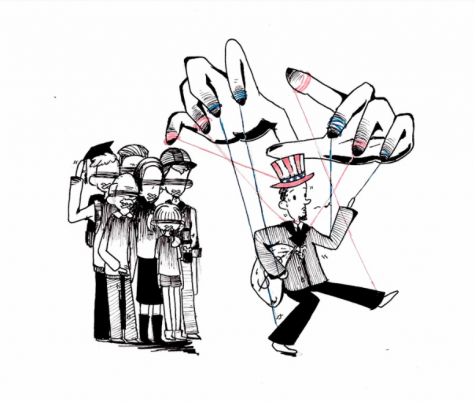Piracy of Privacy: FBI Subpoenas
Not long ago, times were simpler –– at least technologically. Personal information was kept in cards, logs, and fiche film, and digital privacy laws were weak or nonexistent. However, in this new digital world, law enforcement has begun the widespread collection of personal information through organizations like Facebook and Google to profile individuals suspected of criminal behavior.
Data scientists can use this collected information to create data banks that, with the help of algorithms, can identify local and international criminal activity. Additionally, the footprints left behind in social media or in cellular phone logs can be used by the NSA or FBI to intercept communications from organized terrorist groups.
The stringent privacy laws at these organizations have recently prompted the FBI to resort to subpoenas in order to obtain private information. However, the requesting and issuing of subpoenas violates the right to confidentiality of the personal information collected by the complying organization.
This disconcerting practice robs citizens of their privacy, particularly regarding their locations and search patterns. In a world where financial relationships, medical interactions, and private messaging and phone conversations all take place on the Internet, we expect personal data protection from the organizations we interact with.
More importantly, though, the right to privacy is crucial to our identity as humans. It allows us to maintain our autonomy. Our purchasing and locational behaviors are already being used to market personalized products to us. But the collection of personal data constitutes a far more alarming breach of privacy. Therefore, law enforcement’s usage of our information absolutely must be executed with our explicit permission.
The most infamous example of data being nonconsensually collected is the Facebook data breach scandal in early 2018. By taking a personality quiz on Facebook, users unknowingly gave information to Cambridge Analytica, a political consulting firm, about themselves and their Facebook friends. The data was used by political organizations to target specific political advertising at users and ultimately influence their votes. Over 80 million users were affected.
That such a popular application was used in this manner contradicts the very principles America was founded on. Yet little has been done to tackle this within our country. In fact, this issue could very well present a slippery slope through which we become increasingly monitored over time. Thus, it is important for the public to comprehend the severity of this breach of privacy and to take action against it.
Platforms such as Facebook are still widely used throughout the world, and despite the obvious risks, people still trust these organizations enough to give away their information. To be certain of our privacy and freedom, we must insist on our right to know when our personal data is being collected by corporations, or more concerningly, by the American government itself.












